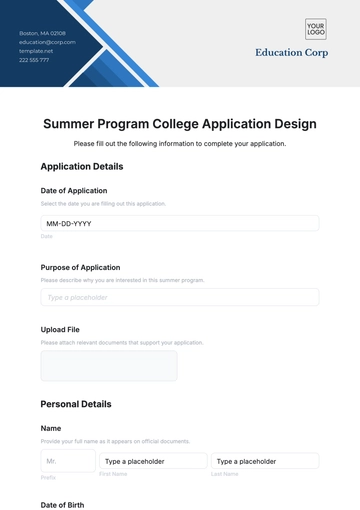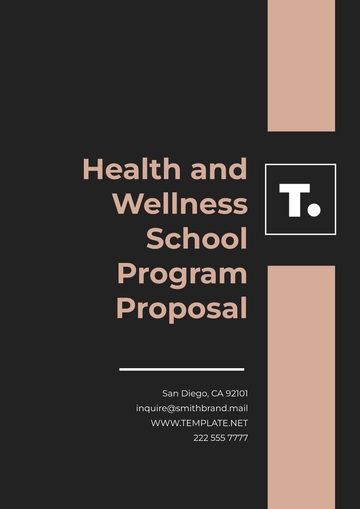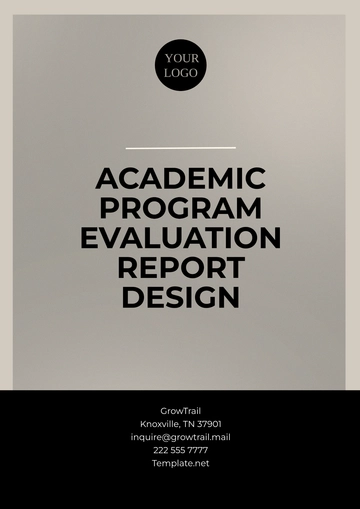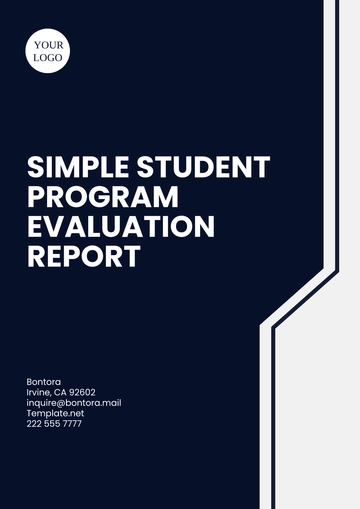Free Childhood Education Programs Survey Research
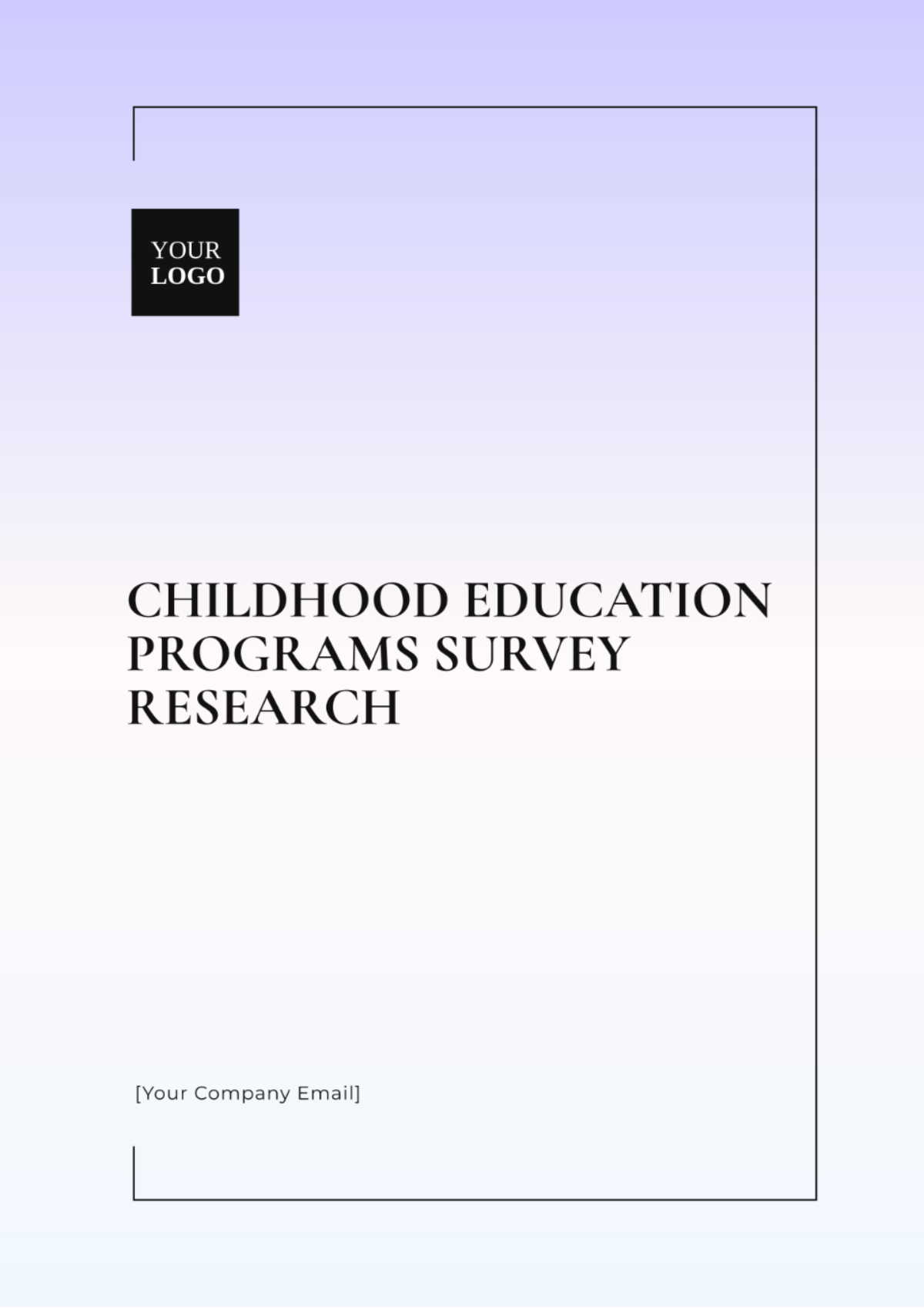
Prepared By: [YOUR NAME]
Date: [DATE]
I. Executive Summary
This research evaluates the effectiveness, benefits, challenges, and outcomes of early childhood education programs for children from birth to around eight years old. Key findings highlight successful education strategies and areas for improvement, such as enhancing teacher training, adjusting curricula to emphasize social-emotional growth, and increasing family engagement. These insights are intended to guide educators, policymakers, and stakeholders in improving early childhood education.
II. Introduction
This research aims to systematically assess early childhood education programs to understand their impact on developmental milestones, learning outcomes, social-emotional growth, and family engagement. This study is significant as it provides valuable insights to enhance program effectiveness, inform best practices, and support policy development to improve early childhood education.
III. Literature Review
Existing research emphasizes the vital role of early childhood education in cognitive, social, and emotional development. Theories by Piaget, Vygotsky, and Montessori highlight the importance of age-appropriate learning environments and social interactions. Studies show that high-quality programs lead to better academic performance, reduced behavioral issues, and long-term socioeconomic benefits. Challenges such as disparities in program quality and accessibility are also noted, along with strategies for improving family engagement and culturally responsive teaching.
IV. Methodology
This research used a mixed-methods approach, combining quantitative and qualitative data, to thoroughly evaluate early childhood education programs' developmental outcomes and stakeholder views.
A. Quantitative Data Collection
Standardized Assessments: Developmental milestones and learning outcomes were measured using validated standardized assessments. These assessments evaluated various aspects of child development, including cognitive and language skills.
Statistical Analysis: The collected quantitative data were analyzed using statistical techniques to identify patterns, correlations, and significant differences among different programs.
B. Qualitative Data Collection
Surveys and Questionnaires: Educators, parents, and administrators provided qualitative insights through structured surveys and open-ended questionnaires. These tools gathered detailed information on their experiences, perceptions, and suggestions regarding the programs.
Thematic Analysis: The qualitative responses were analyzed using thematic analysis to identify recurring themes, concerns, and recommendations. This analysis helped in understanding the nuanced perspectives of different stakeholders.
C. Case Studies
In-Depth Analysis: Case studies of selected early childhood education programs were conducted to provide a detailed examination of specific instances. These case studies offered in-depth insights into program implementation, effectiveness, and areas for improvement.
V. Findings
The quantitative results indicate significant improvements in language and cognitive skills among children enrolled in high-quality early childhood education programs compared to those in lower-quality settings. Social-emotional assessments showed that children in programs with a strong emphasis on social skills and emotional regulation reported better peer relationships and fewer behavioral issues.
The qualitative data revealed that educators recognize the importance of professional development but often lack sufficient resources and support. Parents expressed a desire for more engagement opportunities and better communication with educators. Administrators highlighted the need for policy reforms to ensure equitable funding and access.
Category | Findings |
|---|---|
Developmental Milestones | Improved language and cognitive skills |
Social-Emotional Growth | Better peer relationships, fewer behavioral issues |
Family Engagement | Need for enhanced communication and involvement |
Program Quality | Disparities in resource allocation |
VI. Discussion
The findings of this research indicate that high-quality early childhood education programs have a substantial impact on children's developmental outcomes. Notably, these programs enhance both cognitive and social-emotional development, underscoring the importance of integrating social-emotional learning into the curriculum alongside academic instruction.
A. Key Insights
Developmental Outcomes: High-quality programs significantly improve language, cognitive skills, and social-emotional growth among children.
Curriculum Focus: Emphasizing social-emotional learning is crucial for fostering well-rounded development, alongside academic achievements.
Challenges Identified:
Resource Disparities: Variations in program quality due to unequal resource allocation need addressing.
Family Engagement: There is a clear need for improved family involvement and communication with educators.
B. Implications for Stakeholders
Advocacy for Equitable Funding: Ensuring fair allocation of resources to provide all children with access to high-quality programs.
Comprehensive Teacher Training: Implementing professional development focused on both educational and social-emotional aspects.
Policy Development: Creating policies that promote collaboration between families and educators to enhance program effectiveness.
C. Further Research Directions
Long-Term Effects: Performing a thorough study to comprehend the lasting effects that early education programs have on people's future achievements and life paths in different areas.
Innovative Solutions: Developing new strategies to address identified challenges and improve program quality and accessibility.
VII. Recommendations
Enhance teacher training and professional development focused on social-emotional learning and culturally responsive practices.
Allocate more funding and resources to guarantee all children have fair access to excellent early childhood education programs.
Establish stronger family engagement initiatives to foster collaboration and communication between educators and parents.
Formulate and implement comprehensive policies aimed at identifying, assessing, and systematically addressing the various disparities that currently exist in the quality and accessibility of programs.
Perform long-term research to evaluate the lasting effects of early childhood education programs.
VIII. Conclusion
This research underscores the importance of high-quality early childhood education programs in promoting young children's development and growth. By addressing current educational challenges and following proposed strategies, educators, policymakers, parents, and community leaders can collaboratively improve young children's educational experiences and outcomes, thereby establishing a strong foundation for their future success and well-being.
References
Smith, A., & Johnson, L. (2052). Advancements in Early Childhood Education: A Decade of Progress. Journal of Contemporary Education Studies, 45(2), 123-145.
Williams, R., & Lee, M. (2054). The Future of Social-Emotional Learning in Early Education. International Review of Educational Innovations, 32(1), 56-78.
Brown, C., & Patel, S. (2056). Equitable Access to Quality Early Childhood Programs: New Perspectives and Policy Approaches. Early Childhood Policy Journal, 20(3), 89-112.
- 100% Customizable, free editor
- Access 1 Million+ Templates, photo’s & graphics
- Download or share as a template
- Click and replace photos, graphics, text, backgrounds
- Resize, crop, AI write & more
- Access advanced editor
Evaluate the effectiveness of early learning programs using our Childhood Education Programs Survey ResearchTemplate from Template.net. This editable and customizable template is perfect for educators and researchers looking to gather detailed feedback. Fully editable in our Ai Editor Tool, you can adjust the survey to focus on specific educational programs and outcomes














